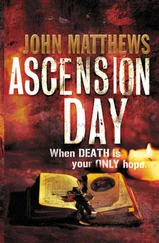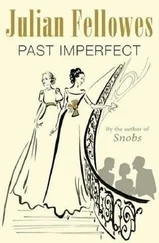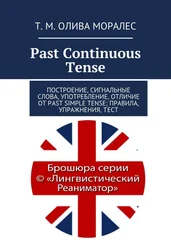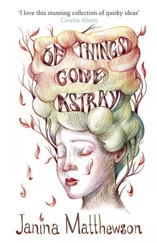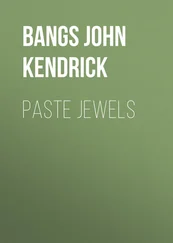John Matthews - Past Imperfect
Здесь есть возможность читать онлайн «John Matthews - Past Imperfect» весь текст электронной книги совершенно бесплатно (целиком полную версию без сокращений). В некоторых случаях можно слушать аудио, скачать через торрент в формате fb2 и присутствует краткое содержание. Жанр: Триллер, на английском языке. Описание произведения, (предисловие) а так же отзывы посетителей доступны на портале библиотеки ЛибКат.
- Название:Past Imperfect
- Автор:
- Жанр:
- Год:неизвестен
- ISBN:нет данных
- Рейтинг книги:4 / 5. Голосов: 1
-
Избранное:Добавить в избранное
- Отзывы:
-
Ваша оценка:
- 80
- 1
- 2
- 3
- 4
- 5
Past Imperfect: краткое содержание, описание и аннотация
Предлагаем к чтению аннотацию, описание, краткое содержание или предисловие (зависит от того, что написал сам автор книги «Past Imperfect»). Если вы не нашли необходимую информацию о книге — напишите в комментариях, мы постараемся отыскать её.
Past Imperfect — читать онлайн бесплатно полную книгу (весь текст) целиком
Ниже представлен текст книги, разбитый по страницам. Система сохранения места последней прочитанной страницы, позволяет с удобством читать онлайн бесплатно книгу «Past Imperfect», без необходимости каждый раз заново искать на чём Вы остановились. Поставьте закладку, и сможете в любой момент перейти на страницу, на которой закончили чтение.
Интервал:
Закладка:
Only one lead left now. One hope remaining out of the original nine. Lepoille had phoned with another name while he waited in the Rouen cafe for Leveque’s return home. He'd called straightaway. Nothing. Leveque had been equally as hopeless, hardly even remembered the garage, let alone the car or the coin.
Portions of the five conversations spun randomly though his mind. The man on the second call had commented: 'A coin, you say… now that's interesting…' Dominic's pulse had raced, only for the man to continue with a story about his nephew being a keen coin collector. 'I think he has one of that type in his collection. Bought it not long ago…'
Dominic shook his head. Nearly all of them had appeared more alert at the mention of the coin: 'Was it valuable?'… 'What type did you say?'… 'Was it from a robbery?' Cars they expected to be asked about, they'd handled little else for decades… but a coin linked to a murder enquiry? Something different from their daily grind. He had been so sure that one of them, just one of them would have… Roudele! The thought crashed in abruptly. The pause. The long pause when he'd asked Roudele about the coin and a dog had been barking in the distance. Roudele hadn't asked any questions about the coin, showed no curiosity. Almost as if in that moment it had all come back to him, he knew exactly what Dominic was talking about. He didn't need to ask.
The thought settled. But then it could have been anything. A distraction: someone walking in the room, something interesting on the TV, Roudele wondering why the dog was barking outside. Perhaps he should have visited each one personally, read their expressions, the look in their eyes.
A distraction, or did Roudele know something? Dominic closed his eyes momentarily, sighing. Nothing underlined stronger how little hope he placed in the remaining lead: a woman. Probably a secretary or receptionist. Certainly she wouldn't have worked on the car herself, the only hope was if she'd logged or recorded something found from one of the mechanics. Perhaps one of the three now dead. But what were the chances of her knowing something which nobody else in the garage had shared?
Dominic rested back, tried to get back to sleep. Catch another hour before they arrived at Lyon. He was exhausted.
When his mobile rang twenty minutes later, he was still drifting on the edge, thoughts revolving preventing him falling fully under. He reached for it expectantly.
It was Deleauvre. 'We've got Duclos. Eynard's going to name him!'
The excitement suffused slowly; he was still half asleep. So tired. 'That's great. When's it happening?'
'Day after tomorrow. First thing in the morning.' Deleauvre summarized the deal with Sauquiere.
'Will any children come forward in support?'
'No, too sensitive. A lot of them are illegals or runaways. It's complicated.'
Eighteen months, two years, thought Dominic. The maximum of four or five could only be gained with a child testifying and the claim of abuse. Poor consolation for murder, but at least Duclos' career would be ruined. 'Oh, how the mighty fall,' he commented, smiling. He thanked Deleauvre for his help, and they arranged to speak again straight after Eynard's statement.
Putting down his mobile, Dominic caught his own reflection in the train window: eyes dark circled, haunted. The face of a man that looked like he'd been chasing the same case for thirty years. But intermittently electric sparks from the train cut through the darkness outside and his reflection. How the investigation felt: hurtling through darkness with just a few flashes of hope.
Serge Roudele remembered the coin straightaway. He'd forgotten it had been an Alfa Romeo coupe, hadn't read where Fornier's questions were heading early in the conversation.
At the time, he'd been left his father's coin collection, but wasn't conversant himself with rarity and values. The coin had simply looked nice and could have had the potential to be rare. But when he'd checked, it hadn't been that valuable. Even when he'd sold it along with the rest of his father's collection just over ten years ago, he doubted it had garnered more than five or six hundred francs.
And at today's rate? The offer of 5,000 Francs was probably nearly four times its worth. Inspector Fornier was obviously valuing it at almost mint condition. His first thought had been theft — but would the police really pursue someone over thirty years for a coin of such value? And then Fornier had mentioned murder, and he'd felt his blood run cold. He'd been eager to get off the line, let his thoughts clear.
Reward. No recriminations. But did they want the coin itself back, or just to know that he'd seen it? What would they think when they realized he'd sold it? And could he really believe Fornier's assurance of no recriminations. He remembered seeing a programme once about a police unit in America luring bail jumpers with letters promising lottery prizes. Part of a policeman's job was to trick, outwit criminals. How else would they get people to come forward without some enticement?
The reward was tempting, he could do with the money. But would he be walking straight into a trap? His greed in taking the coin in the first place had caused this problem now, he reminded himself. A second bite at the same cherry was probably tempting fate.
THIRTY-SEVEN
Strasbourg, April, 1995
Alain Duclos’ hands shook as he addressed the EU assembly. The medical debate of the decade, and he was central rapporteur . It all rested now on this final stage of the debate: the case of John Moore and the ruling of the California Supreme Court.
The vote taken today was vitally important. The earlier call had come at the worst possible time: 'There's been a few questions with your name arising. Somebody's curious…' Bonoit, a young Limoges Prosecutor now with the Paris Procureur's office. Bonoit initially called Duclos' Brussel's office, mentioned it was delicate. Duclos had phoned him back ten minutes later from a call box.
Reports were before each Minister, and Duclos summarized the key points. The University of California Medical Centre had developed a unique cell line from a cancerous spleen removed from John Moore, filed for patent, then sold that development with resultant rights expected to yield over $1 billion from the pharmaceutical industry. 'Mr Moore subsequently sued, claiming ownership of the body part from which the cell line had been developed, but lost the case. The main premise of that ruling was that as soon as the organ left Mr Moore's body it ceased to become his property, and so was patentable.'
'I understand though that in a first action taken by Mr Moore, a court ruled in his favour?'
Duclos looked at the bank of translators beyond the MEP’s semi-circle: PDS, Italy. 'Yes — but this was overruled by the California Supreme Court. Another factor which weighed was the many years of genetic research taken to develop the cell line. A case of 'added value' uniqueness, if you will.'
'….It's not directly my office — but because of the offbeat nature, it's being bounced around a few departments: questions about past cases involving psychics. Something to do with an original investigation back in 1963, apparently…'
Another voice rose. German 'Green' party: 'That "uniqueness" I believe was quite evident when Mr Moore's spleen was first removed. Mr Moore's argument is not only that he contributed the larger part of that uniqueness, but that he was not even consulted. That this was developed without his permission, and he was — as he described in his own words — 'essence raped.' His body part had ceased to become his own and was suddenly an industry commodity.'
Low mumbling: mixture of support and protest. The Green Party had invited Mr Moore to speak at a Brussels press conference during conciliation, Duclos recalled. If he couldn't get justice in America, then he could at least make history by influencing the future of European patent legislature. But every possible interest group — medical ethics, body and science rights, earth friendship, mainstream and fringe religious groups — had also come out strongly in support. Ownership of body parts was an emotive issue.
Читать дальшеИнтервал:
Закладка:
Похожие книги на «Past Imperfect»
Представляем Вашему вниманию похожие книги на «Past Imperfect» списком для выбора. Мы отобрали схожую по названию и смыслу литературу в надежде предоставить читателям больше вариантов отыскать новые, интересные, ещё непрочитанные произведения.
Обсуждение, отзывы о книге «Past Imperfect» и просто собственные мнения читателей. Оставьте ваши комментарии, напишите, что Вы думаете о произведении, его смысле или главных героях. Укажите что конкретно понравилось, а что нет, и почему Вы так считаете.

